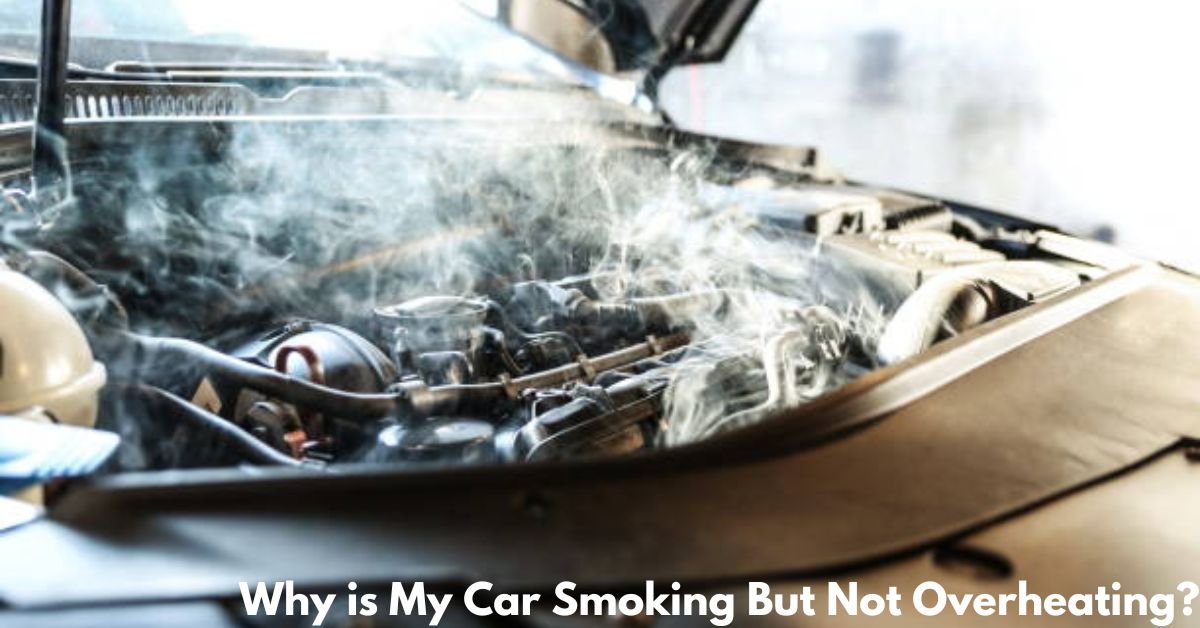If you’ve ever experienced the alarming sight of smoke coming from your car without the temperature gauge creeping into the “overheating” zone, it can leave you scratching your head and wondering what’s going wrong. While smoking can often be a sign of trouble, it doesn’t always mean your car is about to overheat. There are several reasons why your car might be smoking but not showing signs of overheating, and understanding the causes can help you avoid costly repairs and prevent potential damage.
Why Is My Car Smoking But Not Overheating?
1. Oil Leaks: A Common Culprit
One of the most common causes of smoking without overheating is an oil leak. When oil leaks from the engine, it can drip onto hot engine parts like the exhaust manifold. The heat from the engine causes the oil to burn, creating smoke that may look similar to overheating steam, but without the temperature spike.
Signs of an oil leak include a burning smell, smoke from the engine area, and a noticeable drop in oil levels. If you suspect an oil leak, it’s essential to address it quickly to avoid further engine damage.
2. Coolant Leaks: Not Just an Overheating Problem
Another potential cause of smoking, especially steam-like white smoke, could be a coolant leak. If coolant leaks onto hot engine components, it can vaporize and create smoke. This issue might not lead to immediate overheating because the radiator or cooling system could still be functioning well enough to regulate the engine’s temperature. However, over time, a leaking coolant system can cause your engine to overheat if left unchecked.
Signs of a coolant leak include visible coolant puddles under the car, sweet-smelling smoke, and a drop in coolant levels. It’s important to keep an eye on your coolant system to prevent any long-term damage to your engine.
3. Faulty or Dirty Spark Plugs
If your spark plugs are covered in oil or carbon buildup, they can cause excessive smoking. While this issue won’t directly result in overheating, it can still produce smoke due to improper combustion. The oil or fuel that’s not fully burned may seep out of the exhaust and create visible smoke. This problem may also lead to rough engine performance, including misfires or poor fuel efficiency.
Regular maintenance, such as inspecting and cleaning or replacing spark plugs, can help prevent this issue and keep your engine running smoothly.
4. Leaking Valve Seals or Gaskets
The valve seals or gaskets play an essential role in keeping the engine’s oil and coolant where they belong. If they fail or start to leak, oil or coolant can seep into the combustion chamber, where it burns and produces smoke. Again, this might not cause the engine to overheat immediately, as the cooling system is still functioning properly.
If you notice blue or gray smoke from the exhaust, it’s a sign that oil is leaking into the combustion chamber, which could point to failing valve seals. If left unresolved, this issue can cause significant engine damage, so it’s worth addressing sooner rather than later.
Must Read: Will a New Main Bearing Make the Crankshaft Hard?

5. Worn-Out or Broken PCV Valve
The Positive Crankcase Ventilation (PCV) valve regulates the airflow inside the engine, ensuring that any gases produced during combustion are properly vented. If the PCV valve becomes clogged or fails, it can cause oil to enter areas of the engine where it shouldn’t be. This can lead to excessive smoke without triggering an overheating problem.
A clogged or broken PCV valve is an easy fix and usually doesn’t involve extensive repairs. If you experience smoking and poor engine performance, it’s a good idea to check the PCV valve and replace it if necessary.
6. Transmission Fluid Leaks
While this might sound unusual, a transmission fluid leak can also cause smoking without overheating. If transmission fluid leaks onto hot engine components, it can create smoke. The burning fluid may emit a strong odor that’s easily recognizable, but this issue typically won’t lead to an overheating problem unless the transmission fluid is severely low or the transmission starts to fail.
Keep an eye on your transmission fluid levels, and if you notice any leaks, have them addressed promptly to avoid damage to the transmission.
7. Exhaust System Issues
If the smoking you notice is coming from the tailpipe, rather than the engine, there may be an issue with the exhaust system. A clogged catalytic converter or other exhaust system malfunction can cause unusual smoke without triggering an overheating warning. This type of issue may also lead to poor engine performance or reduced fuel efficiency.
If your car is emitting excessive smoke from the exhaust, it’s a good idea to have the exhaust system checked and repaired by a professional.
Conclusion
Seeing smoke coming from your car can be a concerning experience, but the good news is that not all smoke is a sign of imminent overheating. Whether it’s oil leaks, coolant problems, or a dirty spark plug, there are several potential causes of smoking without overheating. By paying attention to the type of smoke, its source, and any accompanying symptoms, you can help diagnose the issue and take the necessary steps to prevent further damage to your vehicle. Regular maintenance and timely repairs can save you money and keep your car running smoothly for years to come.
If you’re unsure about the source of the smoke, it’s always a good idea to have your car inspected by a mechanic to ensure that any problems are addressed before they turn into bigger, more expensive issues.
